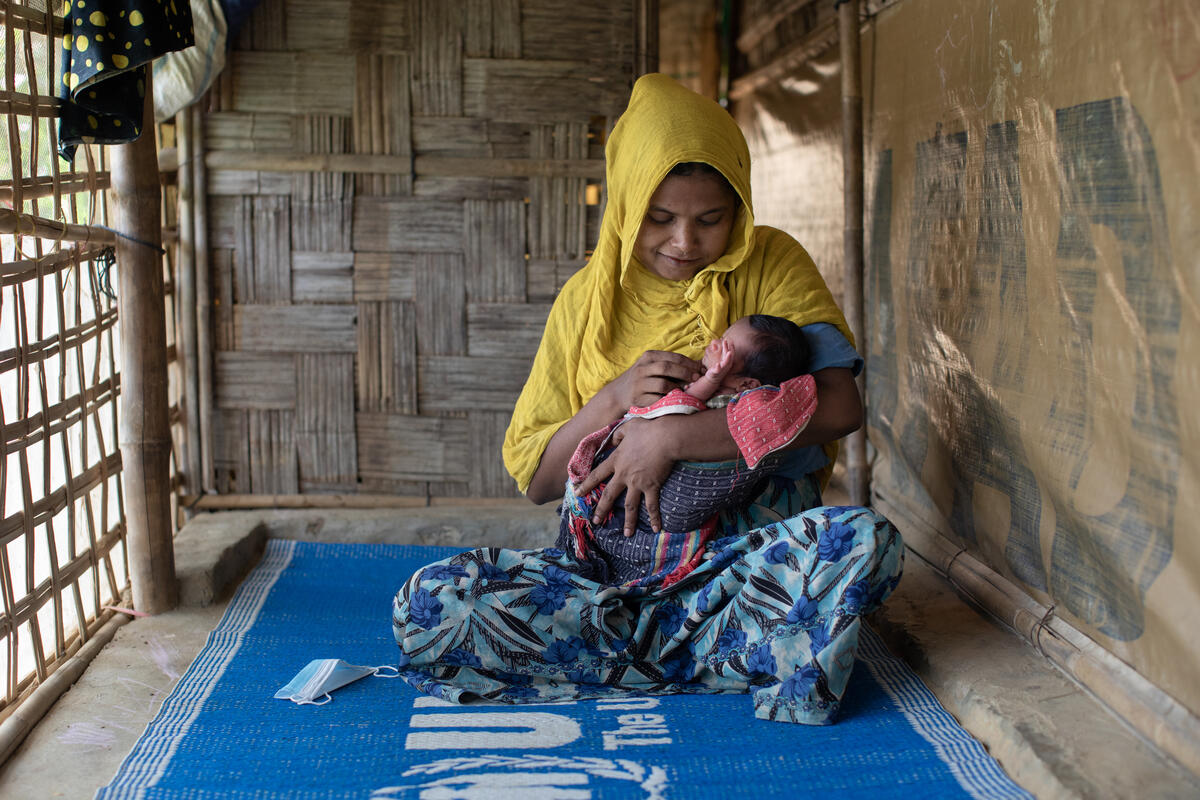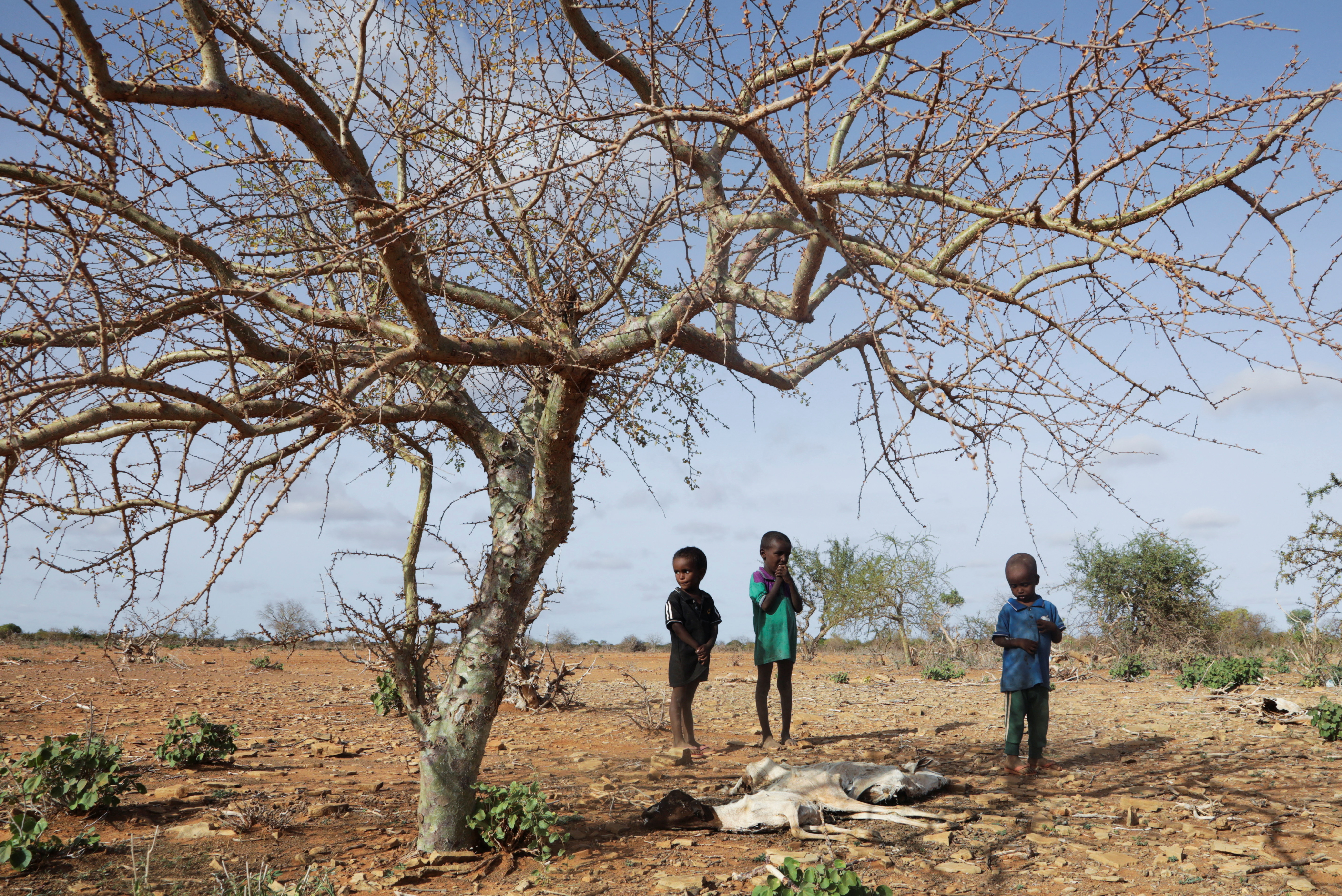UNHCR seeks US$11.1 million to cover shortfall in South Sudan budget
UNHCR seeks US$11.1 million to cover shortfall in South Sudan budget

KHARTOUM, Sudan, October 2 (UNHCR) - The UN refugee agency said on Tuesday it was facing a critical shortfall of US$11.1 million for its refugee return and reintegration operations budget in South Sudan for this year.
"We are in a very dire situation because if we don't get this additional support we will have to scale down or even halt our operations with serious consequences for all our activities," said Chris Ache, the UNHCR representative in Sudan. "I implore donors to give us the money we need to continue our work," he added.
UNHCR spokeswoman Jennifer Pagonis, reiterating the call for help, said in Geneva on Tuesday that the refugee agency's 2007 budget for the South Sudan operation was US$56.1 million, but only US$45 million had been received.
"The funding situation is so dire that transportation of refugees back home from camps in neighbouring countries to Sudan, due to pick up pace again soon after the rainy season ends, may not be able to go ahead, defeating the purpose of our work in South Sudan and neighbouring Blue Nile state," she told reporters.
"Our aim this year was to facilitate the return and reintegration of 102,000 Sudanese refugees and some 25,000 internally displaced people, but without further funds this number will certainly be limited," she added, while noting that UNHCR has this year helped 42,000 refugees repatriate and, along with other agencies, assisted 12,000 internally displaced persons (IDPs) to return home.
Pagonis said that lack of funds in September had forced UNHCR to stop buying in advance basic assistance items, including household and shelter items, hygiene sets and cooking utensils, which the agency usually distributes to returnees to help them settle back in their communities of origin.
With the end of the rainy season in the next few weeks, repatriation operations are set to increase pace with some 22,000 refugees expected to return to south-eastern Sudan between October and December 2007. The returnees are scheduled to return to Eastern Equatoria, Jonglei, Upper Nile and Blue Nile from Uganda, Kenya and Ethiopia.
But Pagonis said UNHCR would not be able to repatriate them or provide minimum assistance packages on return unless it received funding soon. Programmes to build and rehabilitate basic facilities, such as schools, health centres and boreholes, and demining activities in those return areas would also be seriously hampered.
UNHCR assistance has been of vital importance to returnees like Johannes Wani, who began farming in Kapuri village near the town of Juba after returning to South Sudan from Uganda with his family earlier this year.
He is full of hope as he waits for his first crop of groundnuts. "This first harvest will begin a new phase in my life," said the 45-year-old, who has also planted okra, sorghum and sesame on his three acres in a bid to become self-sufficient.
But Wani said this would not have been possible without the help of UNHCR and the UN Food and Agriculture Organization (FAO), which helped him get started with the provision of seeds and agricultural tools in his return support package. Other returnees will not be able to benefit from this kind of reintegration help and will find it harder to make ends meet if UNHCR fails to fill the funding gap.
South Sudan remains extensively devastated and under-developed more than two years after the signing of the peace agreement in January 2005 which ended a two-decade civil war. The conflict caused the displacement of more than 4 million civilians in and outside the country.
Local institutions and communities in South Sudan simply do not have the resources to receive and help returning refugees and IDPs and rely on the government and the international community to assist. In some villages in Western Equatoria and Jonglei states, the only schools have been reconstructed or rehabilitated by UNHCR and other humanitarian agencies.
Some 68,000 southern Sudanese refugees have returned home with UNHCR help since the launch of the voluntary repatriation operation programme in December 2005. They were repatriated from the Central African Republic, the Democratic Republic of the Congo, Uganda, Kenya, Ethiopia, Egypt. Some 92,000 have returned by their own means since 2005.
There are still 260,000 registered Sudanese refugees in exile with the majority (216,000) living in UNHCR camps in Kenya, Uganda, and Ethiopia.
By Fatoumata Kaba in Khartoum
and Peter Farajallah in Juba, Sudan







